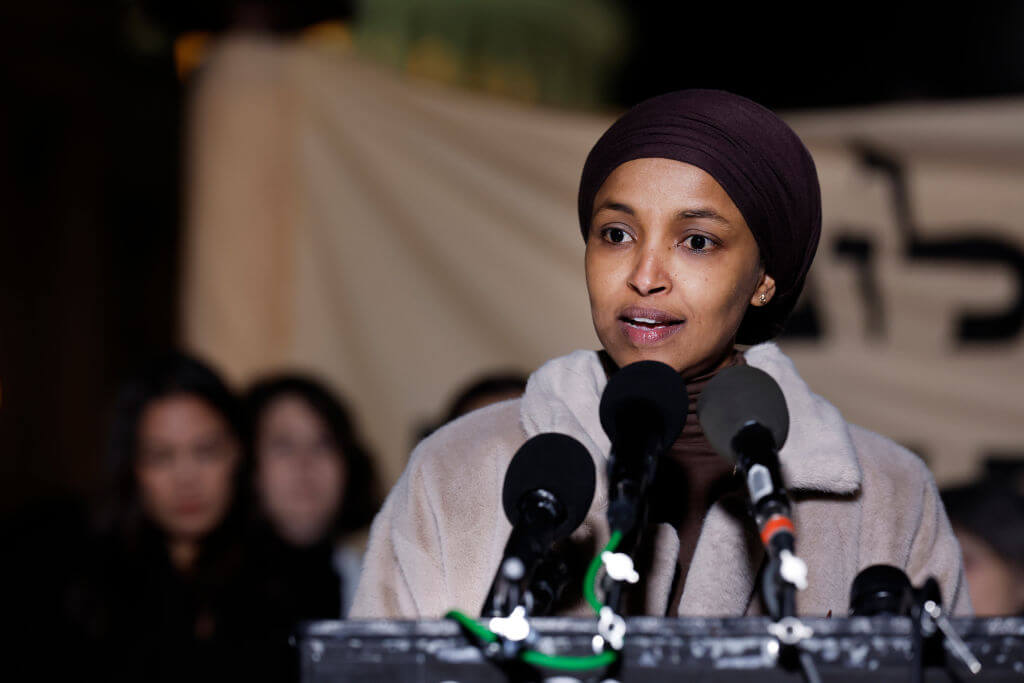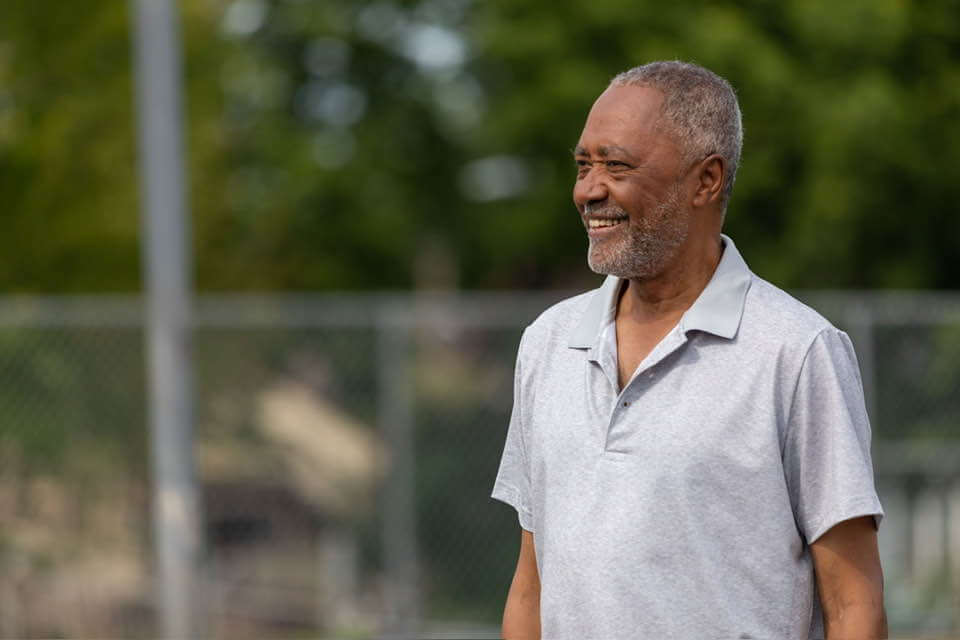Pro-Israel groups helped defeat Jamaal Bowman and Cori Bush. Why aren’t they targeting Ilhan Omar?
Omar’s rival, Don Samuels, came within 2,500 votes of defeating her in the 2022 primary

Rep. Ilhan Omar, D-Minnesota, on Nov. 13, 2023. Photo by Anna Moneymaker/Getty Images
Pro-Israel groups celebrated a second victory Tuesday in their campaign to unseat Israel’s staunchest critics in Congress when Rep. Cori Bush of Missouri lost in the Democratic primary. Rep. Jamaal Bowman was defeated in June. The American Israel Public Affairs Committee’s super PAC, the United Democracy Project, spent at least $24 million to oust Bush and Bowman, two of the first House members to advocate for a ceasefire after the Hamas attack on Oct. 7.
But another member of the Squad — the group of young, outspoken Congressional progressives led by New York Rep. Alexandria Ocasio-Cortez — has a primary next Tuesday. Rep. Ilhan Omar, known for her harsh remarks about Israel that some have called antisemitic, nearly lost to Don Samuels in 2022. He is challenging her again this year.
So why isn’t AIPAC’s super PAC, the United Democracy Project, which announced plans to spend $100 million this year in the last primary of the season, jumping into her race?
“The pro-Israel mainstream has sent a powerful message that America stands with Israel as it battles Iranian terrorist proxies,” AIPAC said in a statement on Tuesday night after the race was called for Wesley Bell, Bush’s rival. “Voters across America are rejecting anti-Israel voices in favor of candidates who understand the vital importance of the U.S.-Israel relationship.”
It’s not as if they’ve warmed to Omar.
She has long drawn the ire of the pro-Israel community and many American Jews over her criticism of Israel — and continues to.
In 2019, she faced strong backlash for tweets accusing AIPAC of paying politicians to support Israel. During the brief Gaza conflict in 2021, she said that alongside Hamas and the Taliban, the U.S. and Israel should be held accountable for “unthinkable atrocities.” During the 2012 war against Hamas, Omar wrote that “Israel has hypnotized the world,” though she later apologized for the statement.
Since Oct. 7, she has aligned herself with other progressive members in calling for a permanent ceasefire and opposing emergency aid to Israel. In April, Omar came under fire for referring to some Jewish students at Columbia University as “pro-genocide” and said she was “enormously proud” of her daughter’s suspension from Barnard for anti-Israel activity.
So it might seem as if Omar is vulnerable this year, given Bush and Bowman’s losses, and the fact that Samuels came close to defeating her in 2022, losing by less than 2,500 votes in the primary for the Minneapolis-centered district, despite little outside support.
The former member of the Minneapolis City Council said in an interview last year that with AIPAC’s support in 2022, he could have won. (He did have some of its support though — it quietly contributed $350,000 to a separate group created to boost him in the final days of the race.)

And AIPAC had indicated it would help defeat Omar this year, and her allies prepared to counter. The pro-Israel group reportedly considered backing LaTrisha Vetaw, a Minneapolis councilmember, who was weighing a bid. They didn’t — but they haven’t backed Samuels either.
The numbers explain why.
Politics by the numbers
The Samuels’ campaign released a poll in April showing the incumbent with less than 50% of voters’ support. And an internal poll taken last month suggested that when voters hear Samuels’ message, she led him by only a few points — 41% to 38%. But a recent poll from the Omar campaign showed her with a 27-point lead — 60% of district voters favoring her compared to 33% for Samuels.
That last poll likely dissuaded many who would have liked to see Samuels win from backing him with their dollars.
Samuels told me Wednesday that he thinks AIPAC is “missing an opportunity.” He said that according to his internal polls, recent ones he didn’t share, he has a shot against Omar, and that enthusiasm for his candidacy is exceptionally high. “The only thing we don’t have is money to match hers — most of which she’s raised on the specter of these organizations engaging in the race,” he said.
Omar raised more than $6 million last year, and last month had $1.8 million cash on hand.
AIPAC declined to comment. A spokesperson for the Omar campaign didn’t immediately respond to a request for comment.
Mark Mellman, chief executive of the Democratic Majority for Israel, which also worked to defeat Bush and Bowman, said he considers two factors when deciding whether to work to defeat an incumbent. “One side is the value of winning, and in this case, the value of beating Cori Bush was tremendous because she has been such a vociferous anti-Israel spokesperson,” Mellman said.
The second factor, he continued, is the incumbent’s “vulnerability.” Though Bush had an early lead in the polls, there were clear signs that those numbers could change dramatically, he said, and bring “the race to essentially an even playing field.”
Bush was already a vulnerable incumbent before AIPAC’s super PAC began spending. A personal scandal involving a federal investigation into her campaign spending on security services and her alienation of some labor allies due to her vote against the bipartisan infrastructure bill had weakened her. The influx of outside spending, combined with the disciplined campaign of Bell, St. Louis County’s prosecutor, made the race even more competitive.
But Omar doesn’t show such vulnerabilities. Samuels hasn’t shown any movement in recent months. AIPAC concluded last month that he had hit a ceiling, according to Jewish Insider.
In the meantime, those targeted by AIPAC have vowed revenge.
In her concession speech on Tuesday, Bush warned, “I’m coming to tear your kingdom down.”


















